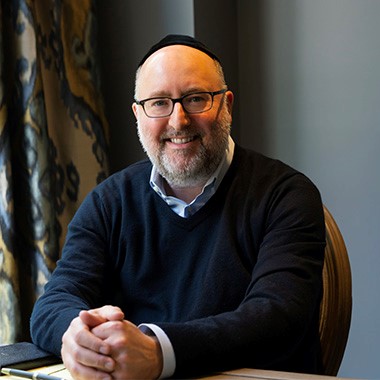This article was previously published in 2018.
The portion Miketz almost always falls within the time of Chanukah; as such, there is a deep connection between the Light of the portion and the Light of Chanukah. And I want to share a teaching that is an important consciousness to be living throughout Chanukah and during this Shabbat.
“They became unified with the Light of the Creator.”
The Gemara tells us that Chanukah was not celebrated the first year. It says L'shana ha'acheret, “the next year,” meaning in the year that Chanukah actually happened, there was no celebration, but l'shana ha'acheret, the next year, they created what we know as Chanukah, with the connection of the eight candles and the prayers; those things were not done the first year.
So, what does it mean that in the first year they did not do anything and only in the next year did they celebrate? Rav Israel of Kozhnitz gives us a beautiful teaching to answer that. He says in the first year, when the miracle happened, their lives were saved, and they were so elevated by the miracle of the oil, and of Chanukah, that they became unified with the Light of the Creator.
I want to talk about miracles for a moment, before going further. A miracle is something that should be so constant in our lives that we do not even get excited about it. The reason we do get excited about miracles is because they do not happen every day, and that is the problem. Why don’t they happen every day? Because we are not connecting enough. A person who is completely unified with the Light of the Creator in his consciousness, life, and work does not get excited about miracles, because he or she knows that miracles happen all the time.
“Miracles become common place.”
So, we go back to the question: Why does it say in the Talmud that in the first year they did not celebrate Chanukah? Because they were so connected to the Light of the Creator that miracles would just happen all the time; of course their lives were going to be saved, and of course they were going to find the miracle with oil. In the next year, however, Rav Israel of Kozhnitz tells us, they realized they were not there anymore, and that their connection and consciousness was weaker. They knew they had to create eight days in a year in which a pathway opens up for those of us who are still low enough to be excited about miracles.
It is, therefore, an important understanding: we do not really want to connect to what we do on Chanukah. Rather, we want to connect to the first Chanukah, when there was no celebration, because they were so connected to the Light of the Creator that they didn’t need to do anything, and miracles were happening all the time. But in the second year, when they saw they were losing that consciousness, they had to create something to open the channel of miracles for people… and that is what Chanukah became.
With this understanding, we come to learn that what we really want to connect to on Chanukah, and on the Shabbat of Miketz, is to become so unified, so connected to the Light of the Creator, that miracles become common place, and there is no need for excitement, there is no need for Chanukah, there is no need for everything that we do; that is the real Light of Chanukah.
